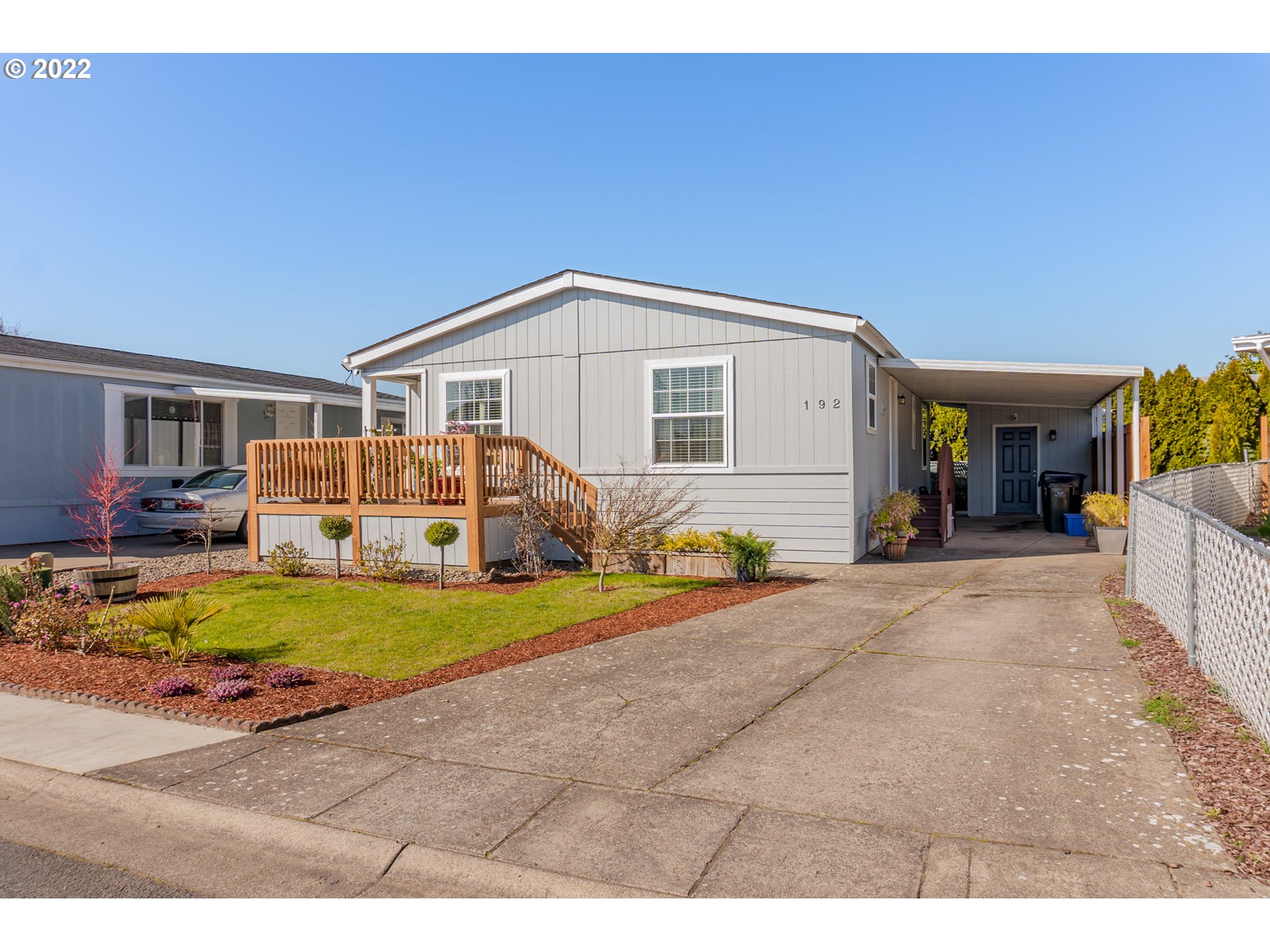The Housing Market Is Changing Rapidly
Good Monday Morning!
Conditions with the housing market in Eugene and Springfield are changing rapidly. The change in mortgage interest rates is leading the charge. Rates have increased significantly over the past several weeks and this trend will most likely continue. How far rate increases go is anyones guess right now. My guess is that as long as inflation continues to soar, mortgage rates will continue to rise. Even more concerning is the fact that the yield curve, which reflects bond rates has inverted and this indicates that we are either in the beginning of a recession or close to entering into one. Mortgage rate increases make it harder for buyers to qualify for financing, so look for the return of ARM loans, which allow buyers to qualify for a lower rate that will be in place for a period at the beginning of their home loan and then adjust to a higher rate, typically 5-7 years down the road. If lenders begin offering these Arm loans, it may take some of the heat off of the interest rates spikes down the road. The following is an article from "realtor.com" that speaks to the current mortgage rate situation.
Mortgages rates keep climbing, and that poses a major challenge for families looking to score a deal during the busy spring home-buying season.
The benchmark 30-year fixed-rate mortgage averaged 4.67% for the week ending March 31, according to data released by Freddie Mac on Thursday. That represents a one-fourth percentage point increase from the previous week.
This marks the highest level for mortgage rates since the end of 2018. Comparatively, at this time a year ago, the 30-year fixed-rate mortgage averaged just 3.18%.
The 15-year fixed-rate mortgage rose 20 basis points from the previous week to an average of 3.83%, and the 5-year Treasury-indexed adjustable-rate mortgage climbed 14 basis points to an average of 3.5%. One basis point is equal to one hundredth of a percentage point, or 1% of 1%.
“We’re at rates that we thought we might see at the end of the year, and here we are, at end of March, already seeing that kind of a jump,” said Michael Fratantoni, chief economist for the Mortgage Bankers Association.
To a large extent, the surge in mortgage rates over the last few weeks has mirrored movements in long-term bonds, including the 10-year Treasury. Those increases have come amid expectations that the Federal Reserve will continue to hike short-term interest rates throughout the rest of this year as it attempts to curb high levels of inflation.
The speed at which mortgage rates have increased though, Fratantoni said, could be indicative of the market’s volatility. And home buyers shouldn’t necessarily assume that rates will only be moving upward from here on out.
“Given the speed of the increase we’re still not quite settled on whether this is volatility and you will see rates moving in both directions, or whether this is just a level shift and we will stay here at the higher level,” he said.
‘There’s a lot of capacity in the mortgage industry.’
Tendayi Kapfidze, chief economist at U.S. Bank
In the coming weeks, the Fed will release the minutes of the March meeting of the committee that sets its interest-rate policy, and those notes will provide more clarity of the central bank’s intentions.
The good news for the housing market is that so far, home-buyer demand has held up in the face of skyrocketing mortgage rates, Frantantoni said. Data on mortgage applications from the Mortgage Bankers Association shows that the number of applications for loans used to purchase homes has only slightly declined, as compared with a major downturn in the number of refinancing applications.
That’s a major shift for the mortgage industry. Since the start of the COVID-19 pandemic, lenders were able to rely on a steady stream of refinances to keep their business afloat.
“Refinancing is now at a three-year low,” said Tendayi Kapfidze, chief economist at U.S. Bank. “What that means is that there’s a lot of capacity in the mortgage industry.”
Many lenders are going to be looking to make up for the lost refinancing business. That provides them with “some impetus” not to raise rates as quickly as they might otherwise choose to, Kapfidze said.
It also underscores the importance for comparison shopping. “If you’re a borrower, you want to be very diligent in terms of comparing rates to see where you might find that advantage from a lender who maybe is trying to reduce the speed at which their business is shrinking,” Kapfidze said.
Have An Awesome Week!
Stay Healthy! Stay Safe! Remain Positive! Trust in God!
THIS WEEKS HOT HOME LISTING!
 1699 N Terry St Spc 192, Eugene, OR
1699 N Terry St Spc 192, Eugene, OR
Price: $149,900 Beds: 3 Baths: 2.0 Sq Ft: 1456
Every part of this home has been beautifully and tastefully upgraded and updated. New paint inside and out, quartz counter tops, new appliances, new luxury vinyl flooring, new lighting, new HVAC, new carpet and new landscaping and newer roof. Beauti...View this property >>
AND HERE'S YOUR MONDAY MORNING COFFEE!!






